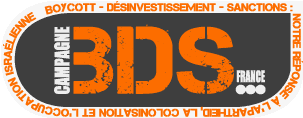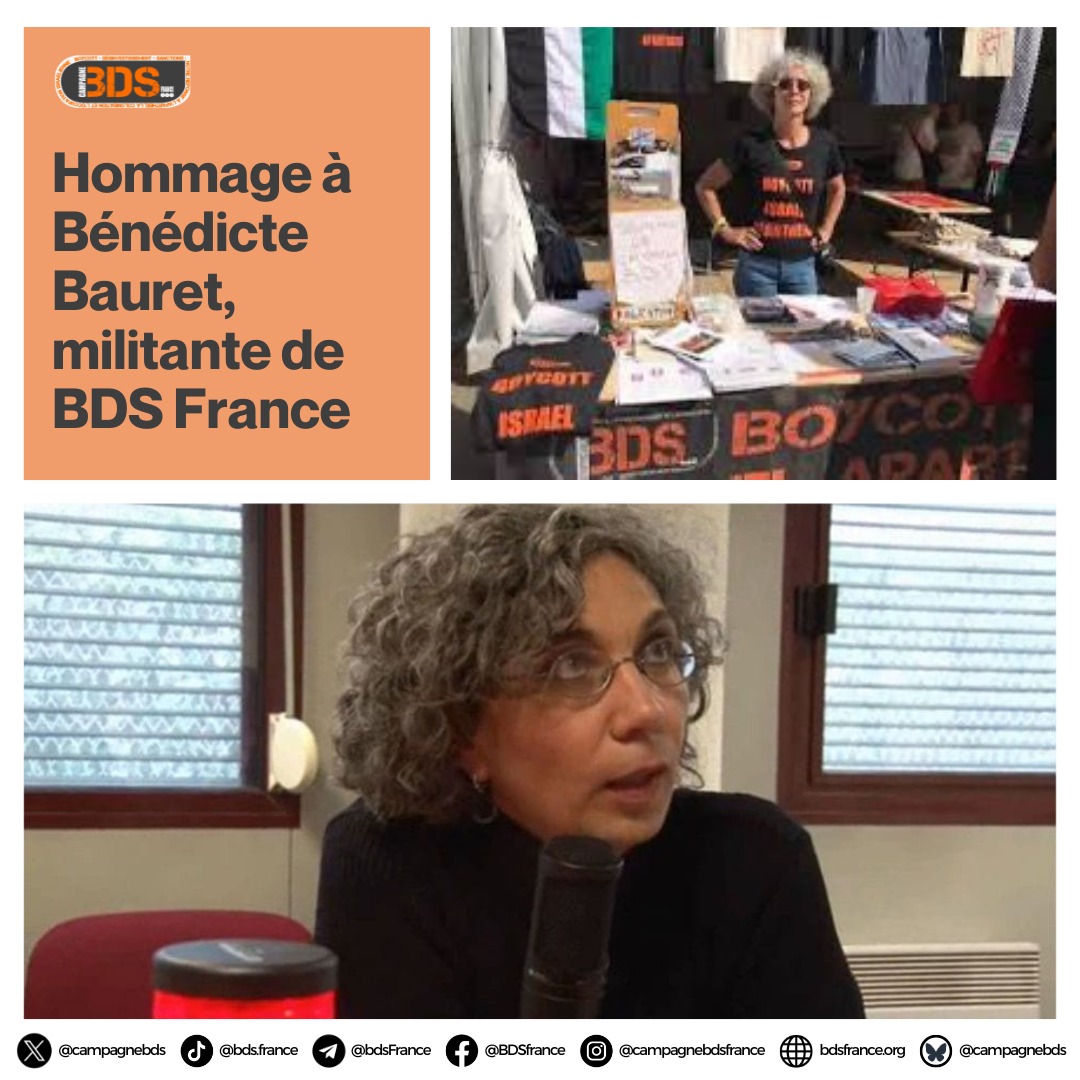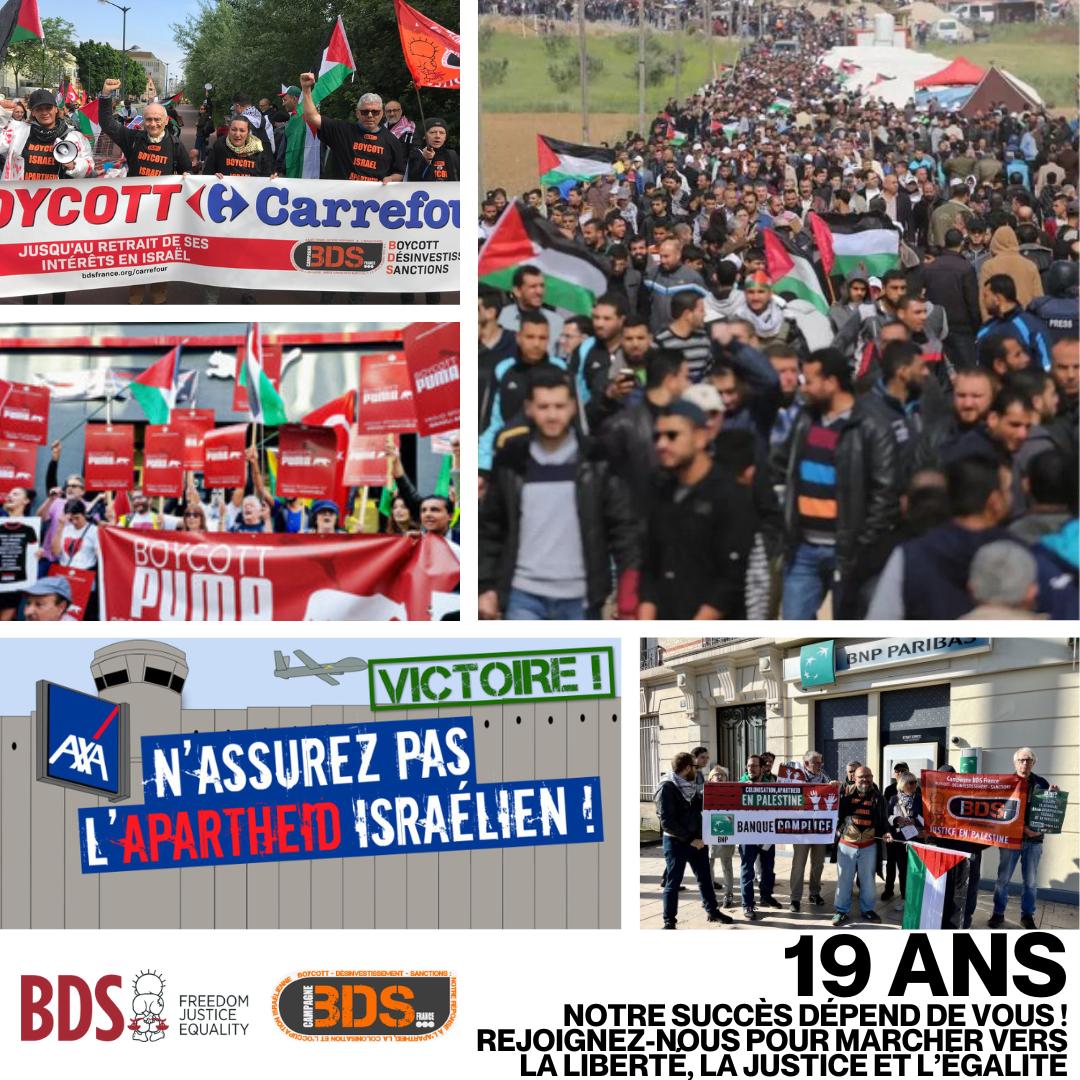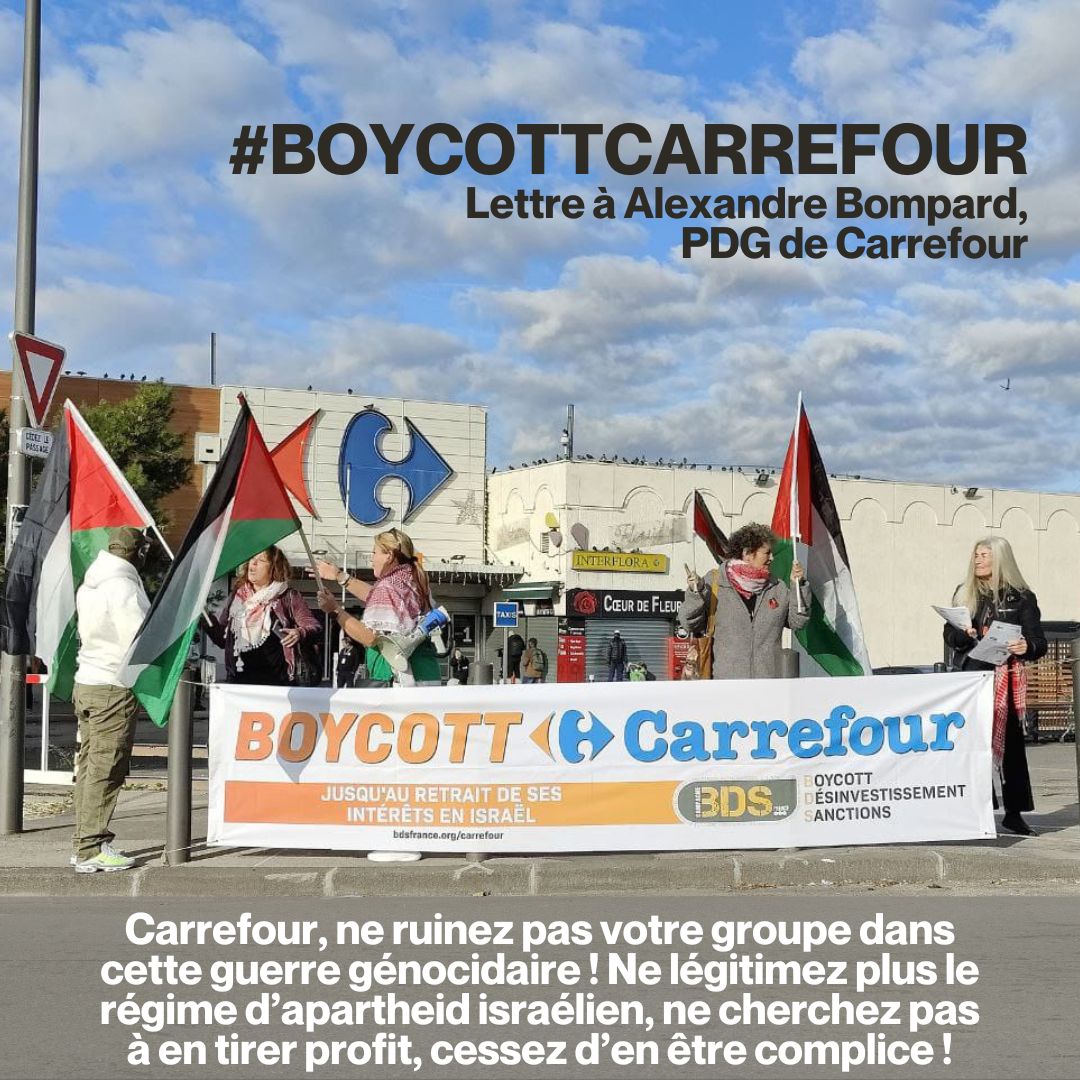english version below
L’invitation faite ce mois-ci à plusieurs artistes maliens, Salif Keita et le couple Amadou et Mariam, de se produire au Festival de musique sacrée de Jérusalem (du 20 au 23 août) a fait couler beaucoup d’encre. Inévitablement, comme nous l’avions fait en début d’année avec Erik Truffaz ou Jacky Terrasson, ces artistes ont reçu des courriers émanant de la campagne internationale de Boycott, Désinvestissement et Sanctions (BDS), les appelant à ne pas se produire dans un pays qui pratique l’apartheid, la colonisation et refuse le droit au retour de millions de réfugiés palestiniens (1). En attendant que ces musiciens prennent leur décision en conscience, nous nous posons également quelques questions.
En effet, ces invitations mettent en lumière la nouvelle politique de séduction que l’Etat israélien mène depuis peu, à l’attention de certaines communautés d’Afrique. La politique israélienne à l’égard de l’Afrique, ou Israfrique, tente d’abord de faire oublier sa longue collaboration avec l’Afrique du Sud du temps de l’apartheid. En dehors des discrets contrats de ventes d’armes et de matériel d’espionnage passés avec de nombreux gouvernements africains, elle s’est singularisée par son engagement dès 2007 aux côtés des rebelles au Darfour, et aujourd’hui avec le Sud Soudan et ses ressources pétrolières et minières, contre le régime de Khartoum. Pour ce faire, l’Etat israélien emprunte une rhétorique simpliste et trompeuse, opposant des «Africains» soutenus par Israël, contre des «Arabes» qu’on imagine proches des Palestiniens. Cette description volontairement raciste passe sous silence le fait que tous les protagonistes sont africains et noirs et qu’ils sont pour la plupart arabophones et musulmans.
Ces liens avec l’Afrique occultent la situation des Africains en Israël. D’abord, il faut rappeler que tous les citoyens ne bénéficient pas des mêmes droits et du même accès aux services publics, selon qu’ils sont juifs ou d’une autre religion, chrétiens ou musulmans. Une soixantaine de lois ont été identifiées comme clairement discriminatoires, et pas moins de 14 obstacles administratifs rendent plus difficile aux non juifs l’accès à l’université, pour ne prendre que cet exemple. Par ailleurs, les juifs d’origine éthiopienne y sont notoirement discriminés et un scandale récent vient de révéler que les femmes ont subi des campagnes de contraception forcée pendant de nombreuses années. Quant aux autres immigrés africains, non juifs, illégaux ou supposés tels, plusieurs douzaines d’entre eux ont récemment été blessés lors de pogroms racistes dans les rues de Tel Aviv. On a même entendu la députée Miri Regev qualifier l’immigration africaine de «cancer de la société israélienne». Le gouvernement israélien n’est pas en reste puisqu’il les qualifie d’«infiltrés», leur interdit d’envoyer de l’argent dans leurs pays, arrête hommes, femmes et enfants et les entasse dans le camp de Saharonim, près d’Eilat, avant de les expulser, parfois en accord avec leur pays d’origine et en échange de nouveaux contrats d’armement!
C’est dans ce contexte que la politique israélienne à l’égard de l’Afrique passe aussi par la musique. Plusieurs officiels israéliens l’ont reconnu, la politique culturelle israélienne est partie intégrante de sa stratégie politique internationale, et en particulier de ses efforts de propagande pour améliorer son image. Sans l’aide du gouvernement, comment un promoteur israélien pourrait-il inviter des musiciens africains, sachant qu’Israël est un petit marché et qu’il n’est pas sur la route des tournées habituelles? Ainsi, il n’est pas étonnant que des instances étatiques israéliennes, comme celle qui organise le Festival de musique sacrée de Jérusalem, cherchent à s’associer à un pays africain, le Mali en l’occurrence, qui fait la une des journaux pour une guerre présentée également comme un conflit entre «Africains» et «Arabes». Alors que des artistes maliens ne s’étaient que très rarement produits en Israël auparavant, depuis deux ans, les invitations pleuvent: Oumou Sangaré, Vieux Farka Touré, Amadou et Mariam, Fatoumata Diawara, Tinariwen, et maintenant Salif Keita.
Dans les années 1970, marquées par des décennies de lutte contre la colonisation, les artistes africains se rangeaient spontanément du côté des Palestiniens et auraient refusé de telles invitations. Aujourd’hui, pour des raisons contractuelles, il est plus difficile pour les artistes de mettre en avant la motivation politique de leurs annulations, et ils vont prétexter un conflit d’agenda, la fatigue ou la crainte pour leur sécurité personnelle. Malgré tout, de plus en plus d’artistes africains s’engagent publiquement dans des actions de boycott culturel de l’Etat d’Israël: la Malienne Oumou Sangaré, l’Egyptienne Natacha Atlas ou les Sud-africains Ladysmith Black Mambazo, Andy Kasrils ou Ewok, par exemple, mais aussi les Sud-africains du comité Artists Against Apartheid ou les Kenyans du Palestine Solidarity Committee, récemment engagés contre un festival du film israélien organisé à l’Alliance française de Nairobi (2). C’est en effet quand les Etats se mêlent de culture que les artistes, mais aussi les spectateurs, se rendent compte du rôle politique qu’ils jouent, et sinon qu’on leur fait jouer…
Sur le même sujet:
Lettre de BDS France à Amadou et Mariam et à Salif Keita / Letter from BDS France to Amadou and Mariam and to Salif Keita : http://tinyurl.com/m7hbw3c
Entre Mandela et Netanyahou, Salif Keita fera-t-il le grand écart ? / Will Salif Keita do the splits between Mandela and Netanyahu ? : http://tinyurl.com/lq27583
Israël : un hôpital interdit aux Noirs : http://www.afrik.com/israel-un-hopital-interdit-aux-noirs
=================================
Israfrica: it involves music too
Wednesday 14 August 2013
BDS France Campaign
The international Boycott-Divestment-Sanctions (BDS) Campaign calls upon all artists invited to Israel not to perform in a country which practises apartheid and colonisation and rejects the right of return for millions of Palestinian refugees.
This month’s invitations to Malian artists, Salif Keita and the Amadou and Mariam duo, to play at the Jerusalem Sacred Music Festival (being held from 20 to 23 August) have caused quite a stir. As happened in the case of Erik Truffaz and Jacky Terrasson at the start of this year, these artists have received letters from the international Boycott-Divestment-Sanctions (BDS) Campaign, appealing to them not to play there. While waiting for these musicians to take a conscientious decision, we are pondering on a few things.
These invitations throw a light on the new charm offensive that Israel has recently been aiming at certain communities in Africa. Israel’s policy with regard to Africa, or Israfrica, is trying first of all to make everyone forget its long collaboration with South Africa during the apartheid era. Apart from the covert deals to sell arms and surveillance equipment to numerous African governments, Israel’s strategy distinguished itself as of 2007 by its support to the rebels in Darfur, and its support today to South Sudan, with its oil and mining resources, against the regime in Khartoum. For this purpose Israel uses simplistic and misleading rhetoric, pitting « Africans », supported by Israel, against « Arabs », imagined to be allies of the Palestinians. Such deliberately racist descriptions ignore the fact that all of the parties involved are black Africans and that most of them speak Arabic and are Muslims.
These links with Africa serve to obscure the situation of Africans living in Israel. One must bear in mind that all citizens of Israel do not enjoy equal rights and equal access to public services, such rights and access depending on whether one is Jewish or Christian or Muslim. Some sixty laws have been identified as clearly discriminatory, and no fewer than fourteen administrative obstacles make access to university more difficult for non-jewish citizens, to take only one example. Moreover, Jews of Ethiopian origin are notoriously discriminated against and a recent scandal revealed that for several years the females had been subjected to campaigns of forced contraception. As for other non-jewish Africans who are either illegal immigrants or considered as such, dozens of them were recently wounded during racist pogroms on the streets of Tel Aviv. The member of parliament Miri Regev was even heard qualifying African immigration as « the cancer in Israeli society ». Not to be outdone, the Israeli government qualifies the migrants as « infiltrators », forbids them from sending money home, and arrests men, women and children, cramming them them into the Saharonim camp near Eilat before deporting them, sometimes in agreement with their home countries and in exchange for new arms deals!
It is against this backdrop that Israel’s policy regarding Africa also involves music. Several Israeli officials have admitted that Israel’s cultural policy is an integral part of its international political strategy, and especially of its propaganda efforts to improve its image. Without government aid, how could a promoter invite African musicians, knowing that Israel represents a small market and is not on their usual tour itineraries? So it is not surprising that Israeli State agencies, like that organising the Jerusalem Sacred Music Festival, are the ones trying to attract an African country – in this case, Mali, whose war is making the front pages and is being presented, again, as a conflict between « Africans » and « Arabs ». Although Malian artists have rarely played in Israel before, invitations have been pouring out over the past two years: to Oumou Sangaré, Vieux Farka Touré, Amadou and Mariam, Fatoumata Diawara, Tinariwen… and now to Salif Keita.
In the 1970s, marked by decades of struggle against colonisation, African artists spontaneously sided with the Palestinians and would have openly refused such invitations. Today, for contractual reasons, it is harder for these artists to express their political reasons for cancelling an engagement so they use instead the pretext of a scheduling problem, or fatigue, or a fear for their personal safety. But despite everything, more and more African artists are now joining the cultural boycott of the State of Israel: the Malian Oumou Sangaré, the Egyptian Natacha Atlas, and South African artists such as Ladysmith Black Mambazo, Andy Kasrils, Ewok, for example, but also the South African members of Artists Against Apartheid and the members of the Kenya Palestine Solidarity Committee who recently took action against an Israeli film festival organised at the Alliance Française in Nairobi. In fact it is when States interfere in culture that artists (and their audience) start to realise that they play a political role, that they’re being made to play one…










